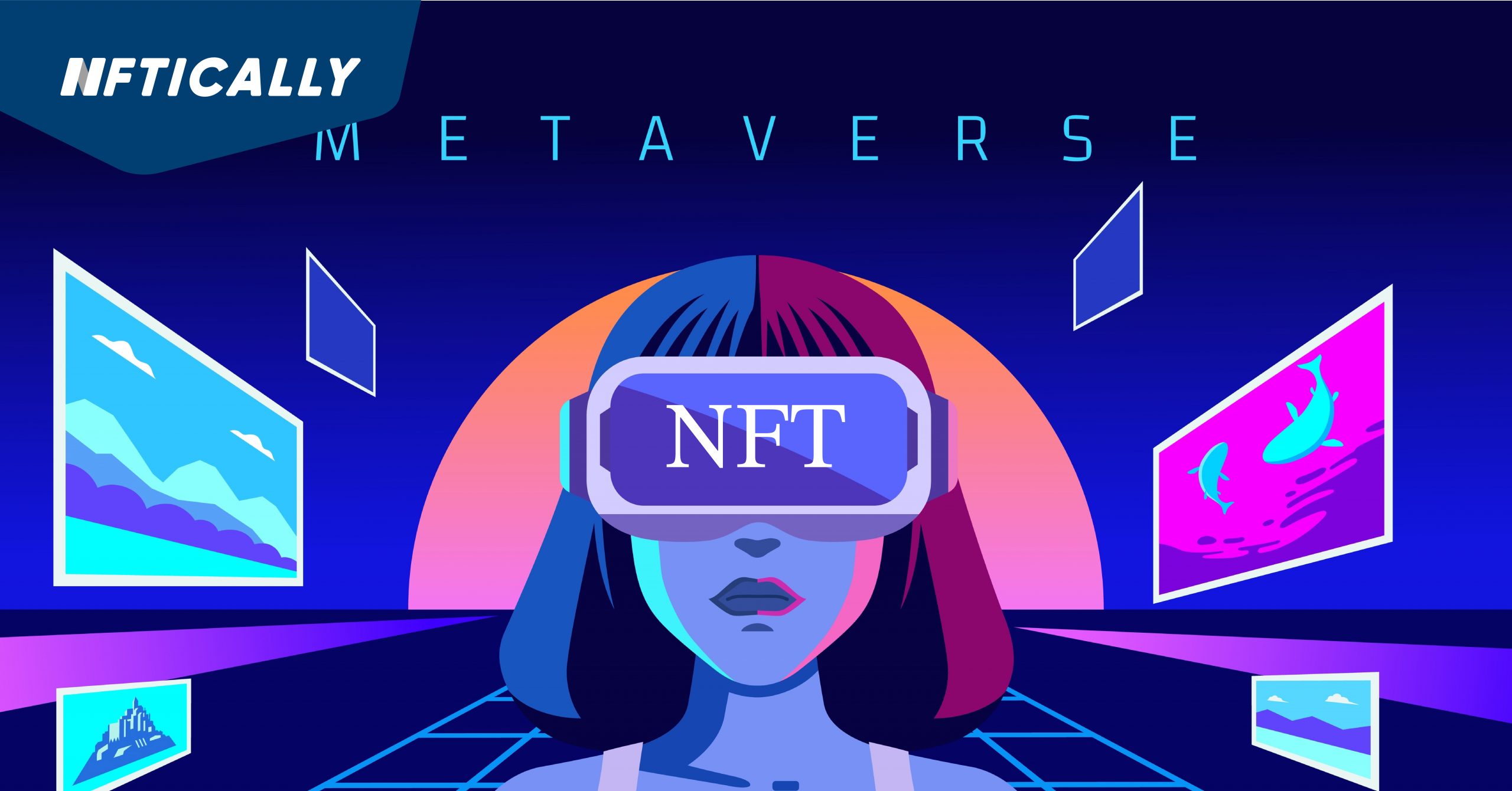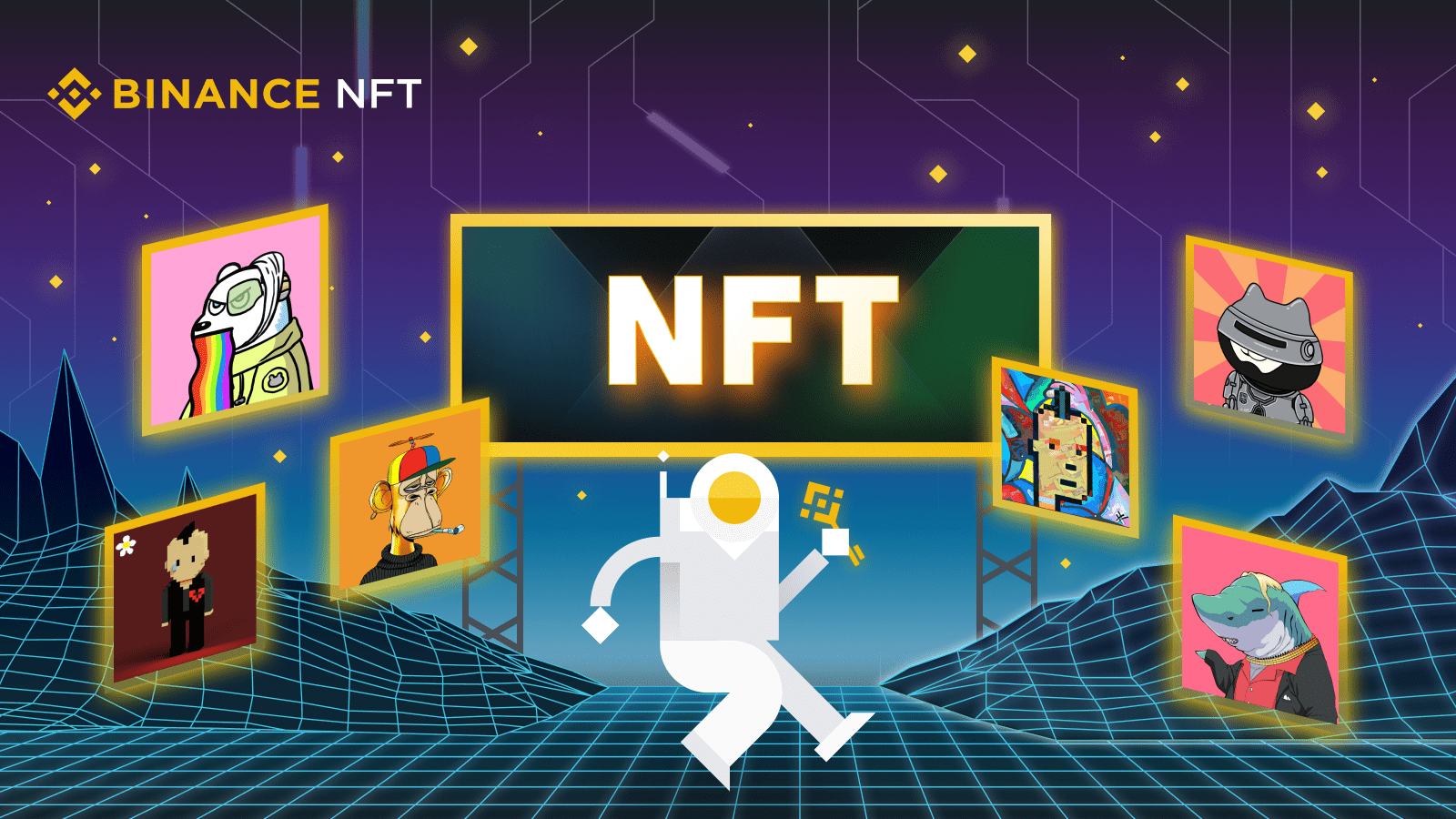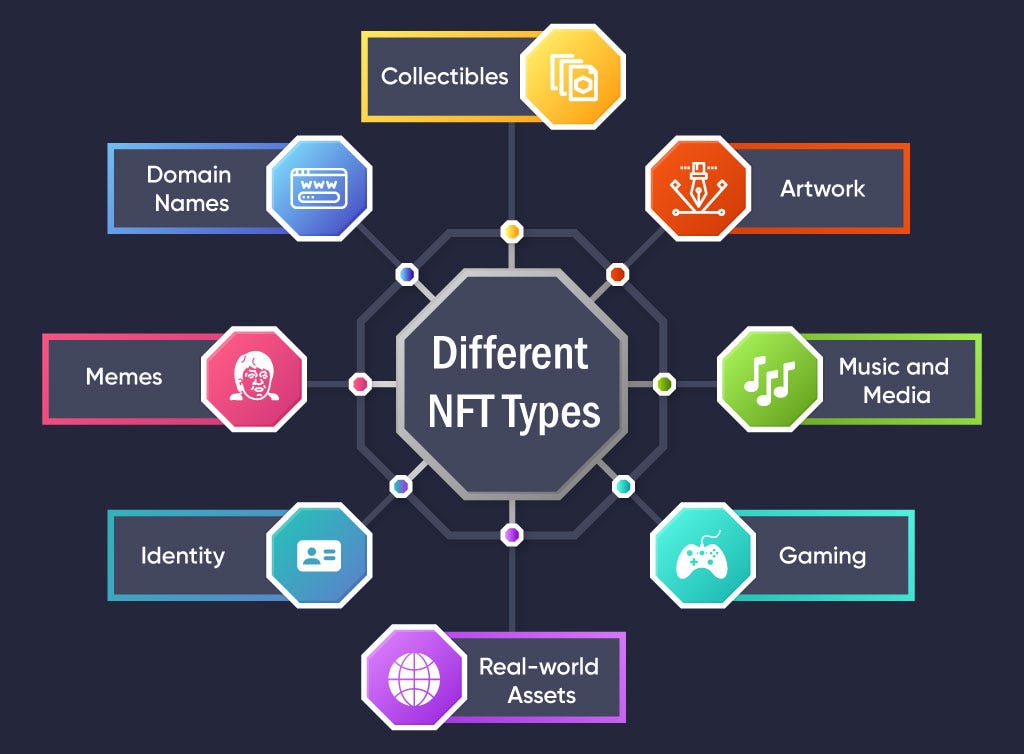Non-Fungible Tokens (NFTs) : Transforming Ownership and Digital Assets
 Abhinav Verma
Abhinav VermaTable of contents


Non-fungible tokens (NFTs) have taken the world by storm, revolutionizing the way we perceive ownership and value in the digital realm. These unique digital assets have found applications in various fields, from art and collectibles to gaming and real estate. In this article, we will explore the fundamentals of NFTs, their benefits, key use cases, and the challenges they face.
Introduction
NFTs are digital assets that represent ownership or proof of authenticity of a unique item or piece of content. Unlike cryptocurrencies such as Bitcoin or Ethereum, which are fungible and can be exchanged on a one-to-one basis, NFTs are indivisible and unique. Each NFT has distinct metadata and attributes that distinguish it from other tokens, making it one-of-a-kind.
NFTs are typically created and managed using blockchain technology, most commonly on the Ethereum network through the ERC-721 and ERC-1155 token standards. The blockchain ensures the transparency , immutability , and security of NFTs , allowing owners to verify the authenticity of their digital assets.
Why NFTs ?
Digital Ownership: NFTs enable true digital ownership of assets. Whether it's a piece of art, a music track, or a virtual real estate plot, NFTs provide indisputable proof of ownership. This ownership is recorded on the blockchain, ensuring that the asset cannot be duplicated or forged.
Authenticity and Provenance: One of the key advantages of NFTs is their ability to verify the authenticity and provenance of digital assets. Artists and creators can mint NFTs for their work, this sets up a verifiable chain on the ledger which allows the current owner to gain the trust over the assets.
Monetization and Royalties: NFTs provide new revenue streams for creators. Artists can sell their work directly to collectors without the need for intermediaries. Additionally, smart contracts can be programmed into NFTs to ensure that creators receive royalties each time their work is resold.
Interoperability: NFTs are interoperable across different platforms and applications. For example, a digital artwork purchased as an NFT can be displayed in various virtual galleries, social media platforms, and even virtual reality environments. This interoperability enhances the utility and visibility of NFTs, allowing owners to showcase their assets in multiple contexts.

Key Use Cases
Non-fungible tokens (NFTs) have a wide range of applications, revolutionizing various industries through digital ownership and authentication. In the Art world, NFTs enable artists to mint, sell, and authenticate digital artworks on platforms like OpenSea and Rarible, bringing significant attention to digital art with high-profile sales. Digital collectibles, such as virtual trading cards and rare in-game items, have created a thriving market, with projects like CryptoPunks and NBA Top Shot leading the way.
In the Gaming industry, NFTs allow for true ownership of in-game assets, enabling players to buy, sell, and trade items across platforms. Games like Axie Infinity and Decentraland have established player-driven economies where virtual activities yield real-world value. Virtual real estate in digital worlds like Decentraland and The Sandbox uses NFTs to represent ownership of land and properties, providing new opportunities for investment and creativity.
In music and entertainment, In music and entertainment, NFTs offer artists innovative ways to connect with fans and monetize their work through exclusive releases and concert tickets. NFTs allow the artist to sell their exclusive collectibles and arts via blockchain technology. This method prevents the counterfeiting of the article.

Final Verdict
Non-fungible tokens (NFTs) have opened up new possibilities for digital ownership, authenticity, and monetization. By leveraging blockchain technology, NFTs provide a secure, transparent, and interoperable way to create, buy, and sell unique digital assets. While challenges such as environmental impact, market volatility, legal issues, and scalability remain, the potential benefits of NFTs are immense. As the technology continues to evolve, NFTs are poised to play a transformative role in various industries, from art and gaming to real estate and entertainment, shaping the future of digital and physical ownership.
Subscribe to my newsletter
Read articles from Abhinav Verma directly inside your inbox. Subscribe to the newsletter, and don't miss out.
Written by